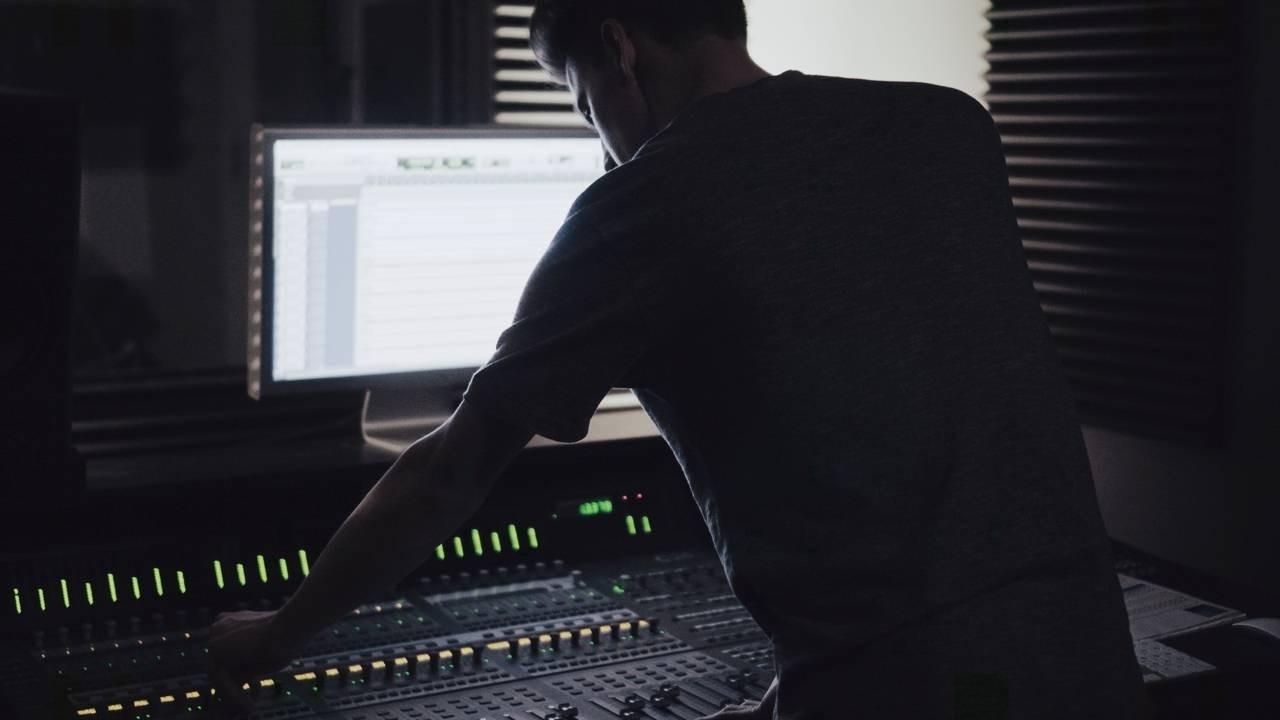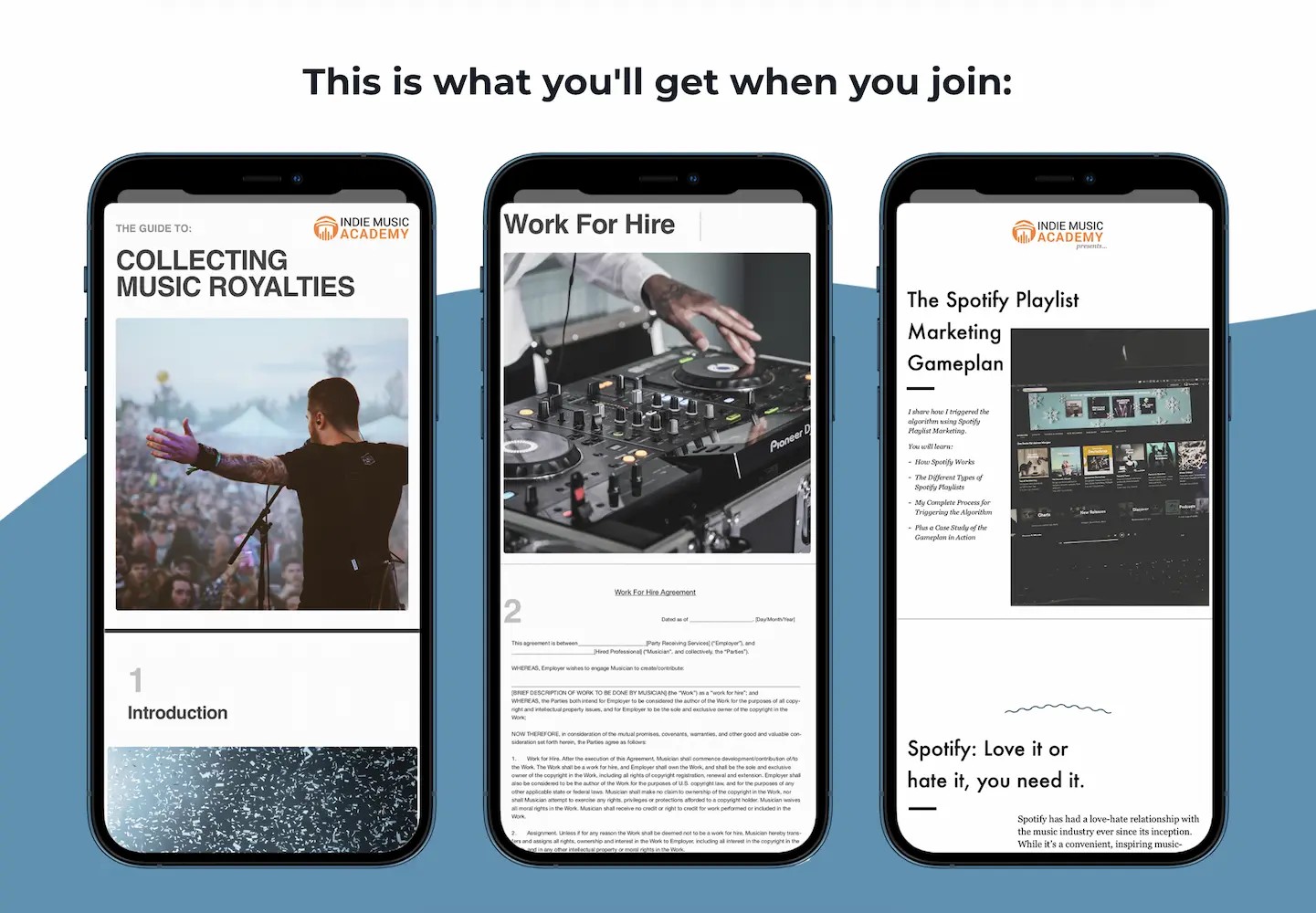

Work for Hire Agreements are a staple in the music business and you shouldn’t get caught without one. Let’s say a friend in the industry calls you up because they need help finishing a song. Or, let’s say you’re a producer and you were asked to make a beat for a new artist. For both of these situations, before you set foot in the studio, they will probably hand you a work for hire agreement. Don’t get caught saying, Huh? What is that?
A work for hire agreement is a one-time contract that guarantees the recipient an upfront cost, or other form of payment, in return for services. This wildly different from receiving royalties, so pay close attention as we break down what you need to know.
As soon as you hear the words “work for hire agreement”, you might think that those legal documents don’t apply to a serious artist like you. But on the contrary, a work for hire agreement can protect you, whether you’re collaborating on a song, performing in a venue, or hiring a fellow musician to work with you. The greatest roadblocks to stardom are any legal troubles along the way, and understanding the workings of a work for hire agreement can keep some of those troubles at bay.
Let’s get into the details. A work-for-hire agreement is a contract between you and another party that dictates what’s expected of each party and who retains what rights to the finished material. In addition, a work for hire agreement often comes with the artist transferring rights to the creative material over to the other party, hence “work for hire”. But before you start yelling about creative licensing, we want to reassure you that these types of contracts don’t strip you of your hard work. In fact, as the recipient artist, this type of contract can ensure that you receive fair pay for completing the project, whether it’s writing a song for another artist, collaborating, or doing a standalone performance.
One big question is whether a work for hire agreement is akin to receiving royalties. Unfortunately, the answer is often no. Unless the contract dictates a set of time that the artist can receive payments, the work for hire agreement is typically one-time use only. Any further compensation will need a whole new discussion and agreement drawn up entirely.
Our friends over at Digital Music News mentioned that it’s crucial that producers be especially aware of the constraints of a work for hire agreement. As a producer, it’s in your best interest to retain certain rights to creative work to build your portfolio. You have to ask yourself if an upfront compensation is worth giving up creative rights or royalties to a finished piece. Food for thought.
One piece of good news about work for hire agreements is that they’re incredibly versatile. It’s essentially one party promising to fulfill the contract for another party, and you can fill in the blanks. Work for hire agreements have been used between lyricists and musicians, songwriters and producers, and instrumentalists for performances.
With projects and ideas getting passed back and forth frequently, it’s essential that you have one of these contracts to cover your bases. The work for hire agreement will clarify what each party is responsible for, and ensures that you get paid.
The even better news is that you don’t have to get in touch with a lawyer or slave away over a keyboard to get your hands on a worthwhile work for hire agreement. Plenty of templates are available online from websites like legalzoom.com or Docracy.
Lion Bold has a template too, and you can print it out right now. Whether you need a composer work for hire agreement, vocalist one, or instrumental, make sure you’re armed with our custom work for hire agreement contract to get the fair payment for your work.
Once you have your work for hire agreement, you are all set to make musical masterpieces with friends and collaborators without worrying about your future success.

Inside the Indie Vault, you'll have complete & unlimited access to Essential Music Industry Contracts, and our music industry resources such as the Spotify Playlist Gameplan & our Music Royalty Collection Guide